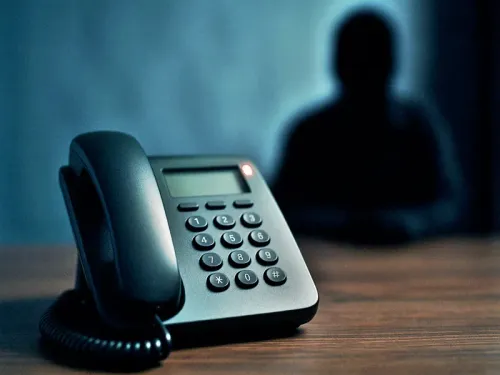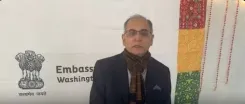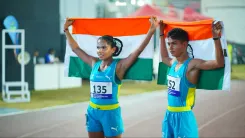Did India Make History with SpaceX Dragon ‘Grace’ and Shubhanshu Shukla's Docking at the Space Station?

Synopsis
Key Takeaways
- Shubhanshu Shukla becomes the first Indian astronaut to dock at the ISS in 41 years.
- The Axiom-4 Mission showcases India's growth as a space power.
- Shukla will conduct pioneering experiments in food and nutrition in space.
- Research aims to improve sustainable life-support systems for future missions.
- Shukla brought traditional Indian sweets to space for comfort.
New Delhi, June 26 (NationPress) After an extensive and passionate wait spanning 41 years, Indian astronaut Shubhanshu Shukla made history on Thursday by successfully docking at the International Space Station (ISS), marking him as the first Indian to arrive at the orbiting laboratory.
This accomplishment means that India has now sent an astronaut into space after 41 long years. Hailing from Lucknow, Shukla becomes the second Indian to venture into space, following Rakesh Sharma’s mission in 1984.
The Axiom Space’s mission -4 brought Shukla aboard, along with three other astronauts from the United States, Poland, and Hungary, successfully docking at the Harmony module’s space-facing port at 6:30 a.m. ET (4:00 p.m. IST).
On this journey, the SpaceX Dragon spacecraft, named ‘Grace’, is carrying Ax-4 Commander Peggy Whitson, Pilot Shubhanshu Shukla, and Mission Specialists Sławosz Uznański-Wiśniewski and Tibor Kapu.
“Docking confirmed!” announced SpaceX in a post on the social media platform X.
The crew launched toward the ISS at 2:31 a.m. EDT (12 noon IST) from Launch Complex 39A at NASA’s Kennedy Space Centre in Florida, using a new SpaceX Dragon spacecraft propelled by the Falcon 9 rocket.
“Hello everyone, namaskar from space. I am excited to be here with my fellow astronauts. What an incredible ride it was! When I was seated in the capsule on the launchpad, my only thought was: let’s just go,” said Group Captain Shukla.
“The launch was exhilarating—you get pushed back into your seat, and then suddenly, you’re floating in a vacuum,” he recounted, sharing his experience in space.
“I am learning like a baby; figuring out how to walk and eat in space,” he added.
Earlier, he mentioned that this mission is “the journey of India’s human space flight.”
Shukla also brought carrot halwa, moong dal halwa, and mango nectar to satisfy his cravings for home-cooked meals in space.
The Axiom-4 Mission is not just a scientific milestone but a reflection of India’s growing status as a global technology leader. It underscores the country's ability to spearhead space innovations, promote sustainability, and contribute significantly to worldwide missions.
Once aboard the ISS, Shukla will engage in groundbreaking experiments focused on food and nutrition in space.
These experiments, developed through a collaboration between ISRO and the Department of Biotechnology (DBT), with assistance from NASA, aim to improve understanding of sustainable life-support systems, a vital aspect of future long-duration space travel.
The research will also investigate the impact of microgravity and space radiation on edible microalgae—a nutrient-rich food source with high potential for future space missions. The experiment will assess key growth factors and analyze transcriptomic, proteomic, and metabolomic changes in various algal species in space compared to their behavior on Earth.







